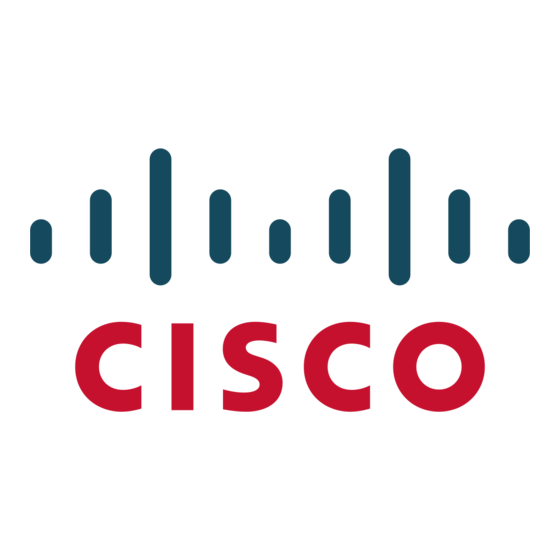Cisco UCS B460 M4 Fiche technique - Page 4
Parcourez en ligne ou téléchargez le pdf Fiche technique pour {nom_de_la_catégorie} Cisco UCS B460 M4. Cisco UCS B460 M4 7 pages. Blade server
Également pour Cisco UCS B460 M4 : Note d'installation et d'entretien (46 pages), Manuel de démarrage rapide (2 pages), Manuel de démarrage rapide (5 pages), Note d'installation et d'entretien (50 pages)

●
Cisco UCS Manager supports a comprehensive, automation-friendly, open XML API that exposes 9000
points of integration. This facilitates custom development to achieve new levels of system visibility and
control. The XML API for Cisco UCS Manager enables automation-friendly insertion into existing IT staff
skills, tools, processes, and management tools.
In addition, Cisco continues to push the frontier of innovation in all Cisco UCS building blocks and supporting
technologies. For example, new Cisco VIC options, expanded Cisco UCS fabric interconnects and additional fabric
extender options expand both throughput and management simplicity for both blade and rack servers. Cisco Data
Center VM-FEX technology collapses virtual and physical networking into a single infrastructure. Data center
administrators can now provision, configure, manage, monitor, and diagnose virtual machine network traffic and
bare-metal network traffic within a unified infrastructure.
Together these Cisco UCS architectural advantages, software advances, and continuous Cisco innovation,
coupled with unique blade server and chassis design, help make Cisco UCS the first truly unified data center
platform.
Features and Benefits
Table 2 summarizes the features and benefits of the Cisco UCS B460 M4 server.
Table 2.
Feature
Unified fabric
Cisco UCS Manager
service profiles
Autodiscovery
Extensive
monitoring
Cisco VIC adapter
Mezzanine adapters
Cisco Flexible Flash
memory
Optional local
storage
© 2014 Cisco and/or its affiliates. All rights reserved. This document is Cisco Public Information.
Features and Benefits
Benefit
● Decreases total cost of ownership (TCO) by reducing the number of NICs, HBAs, switches, and cables needed
● Enables the Cisco 5108 Blade Server Chassis to eliminate in-chassis HBAs, NICs, and switches and reallocates the
saved power to denser, more powerful blade servers with more DIMM slots and better per-blade performance
compared to alternative offerings
● Helps reduce the number of manual steps required to deploy servers in the data center, improving server policy
consistency and coherency
● Allows servers and support infrastructure to be provisioned in minutes instead of days, shifting IT's focus from
maintenance to strategic initiatives
● Reduces configuration errors significantly as blades are added or repurposed
● Enables service profile movement from blade to blade, rack server to blade, blade to rack server, or blade to blade in
another chassis
● Requires no configuration; as with all Cisco UCS components, Cisco UCS B-Series blades and Cisco UCS C-Series
racks are automatically recognized and configured by Cisco UCS Manager
● Through Cisco UCS Manager, provides extensive environmental monitoring for each blade
● Allows use of user thresholds to optimize environmental management of the blade
● Cisco UCS VIC 1240 is a four-port 10 Gigabit Ethernet, Fibre Channel over Ethernet (FCoE)-capable adapter.
● When used in combination with its port expander card, the Cisco UCS VIC 1240 can be expanded to eight ports of 10
Gigabit Ethernet support.
Provides choice of third-party converged network adapters (CNA), VICs, and PCIe flash-memory devices, providing
flexibility, increased application performance, compatibility with industry standards, and network policy coherence for
virtualized environments
● The server includes two internal Cisco Flexible Flash SD cards
● Dual SDHC flash card sockets are provided on the front left side of the server for VMware ESXi loading functions.
● Provides support for up to four front-accessible hot-pluggable hard disk drives (HDDs) or solid state disks (SSDs).
Page 4 of 7
